Scientific Seminar on Innovating Teaching Methods Through Blended Learning
06/08/2024
On the morning of August 5, the University of Economics - University of Da Nang organized a scientific seminar on Innovating Teaching Methods through Blended Learning. The seminar provided an opportunity for lecturers to exchange experiences, update modern teaching methods, and apply advanced technologies in their teaching processes, thereby enhancing the quality of education and meeting the diverse learning needs of students.
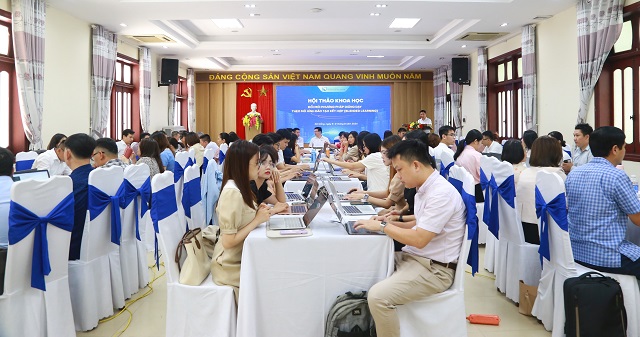
The seminar aimed to equip lecturers with knowledge, skills, and tools to effectively apply Blended Learning methods in teaching while updating modern teaching practices, particularly those proven effective in the Professional Development for Blended Courses (ToT program) organized by the USAID Partnership for Higher Education Reform (PHER) project. It also served as a forum for academic exchange, offering lecturers and researchers a chance to share experiences, discuss, and learn from colleagues.
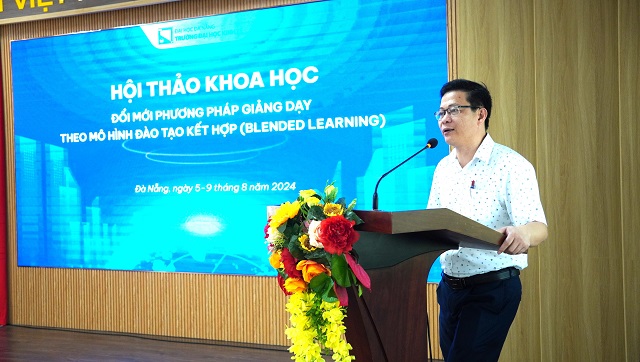
Assoc. Prof. Dr. Le Van Huy - Rector of the University, delivers the opening remarks
The seminar covered seven topics from the training modules under the USAID-PHER Professional Development for Blended Courses (ToT program), including:
- Essential Elements of Blended Learning - Understanding the core components of Blended Learning, which includes integrating face-to-face teaching with online learning activities to enhance student engagement and learning outcomes.
- Basic Principles of Blended Learning - Grasping the fundamental principles guiding Blended Learning, such as flexibility, student-centered teaching, and using diverse teaching methods to meet different learning styles and needs.
- Advanced Principles of Blended Learning - Exploring advanced strategies for implementing Blended Learning, including the use of adaptive learning technologies, data-driven teaching, and personalized learning pathways to maximize student success.
- Student Learning Assessment - Enhancing student learning assessments through various methods, including formative and summative evaluations, to ensure learning objectives are met and provide feedback for continuous improvement.
- Syllabi Development - Understanding how to create effective syllabi that clearly outline course objectives, expectations, assessment methods, and resources to provide students with a roadmap for success in a Blended Learning environment.
- Instructional Design Guidance - Learning to create engaging and educational course content by applying instructional design principles, such as aligning learning objectives with activities and assessments and incorporating multimedia and interactive elements to enhance the learning experience.
- Technical Tools for Instruction - Learning to make smart technology choices by evaluating and selecting appropriate tools and platforms to support Blended Learning, ensuring that technology enhances rather than hinders the learning process.
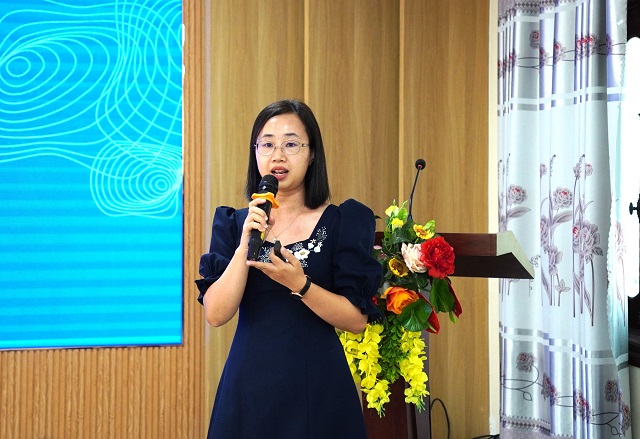
Dr. Nguyen Thi Thieu Quang introduces the university's training system
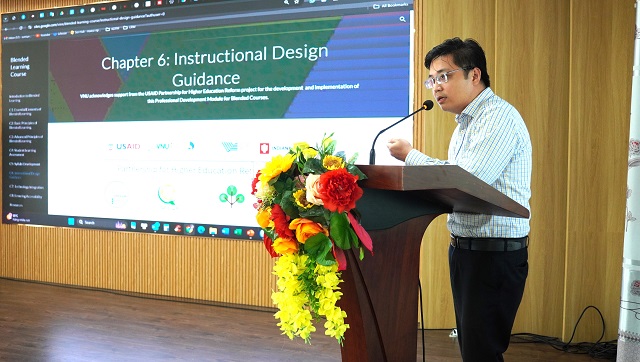
Dr. Nguyen Son Tung presents at the seminar
The seminar was particularly beneficial for lecturers with less than five years of teaching experience, who gained insights into the university's training system, including training regulations, policies, and various forms of learning assessment. Faculty members who are department heads or academic leaders were also able to master and effectively apply the training modules from the USAID-PHER program, which includes eight key topics on Blended Learning.
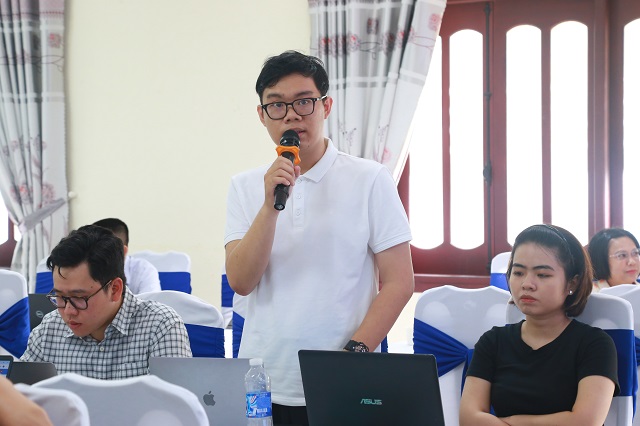
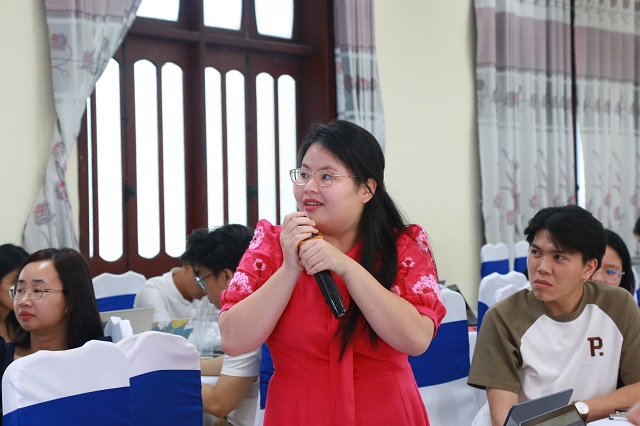
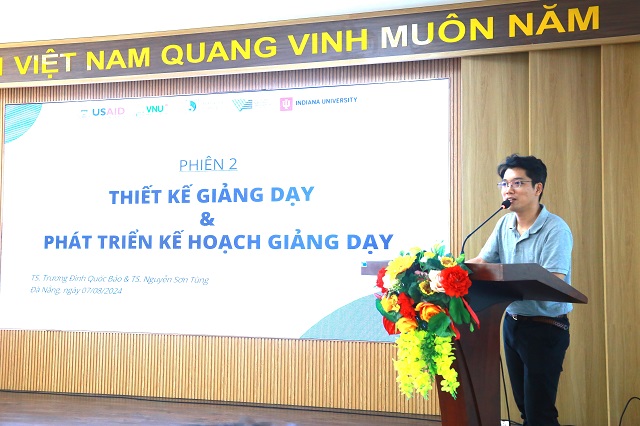
Lecturers engage in discussions with the speakers
In the context of the Fourth Industrial Revolution (Industry 4.0), the remarkable development of information technology (IT) has facilitated and profoundly influenced educational activities, leading to the formation and growth of Blended Learning methods. This approach not only diversifies the learning environment, providing flexibility in time and space, but also reduces training costs, offering significant value to society. Currently, the Blended Learning model has gradually gained prominence and is widely applied in higher education institutions in many developed countries.
However, Industry 4.0 also poses significant challenges for higher education, requiring universities in Vietnam to be clearly aware and ready to change teaching methods and invest in infrastructure to produce a high-quality workforce. In this context, the scientific seminar on "Innovating Teaching Methods through Blended Learning" was organized to enhance the professional capacity of lecturers at the University of Economics - University of Da Nang. The seminar aimed to support lecturers in professional development and improve the effectiveness of teaching for Blended Learning courses.
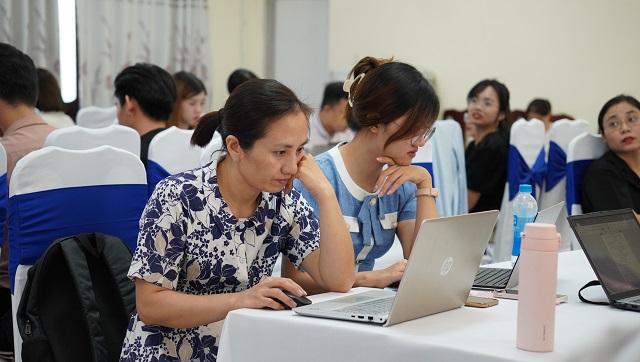
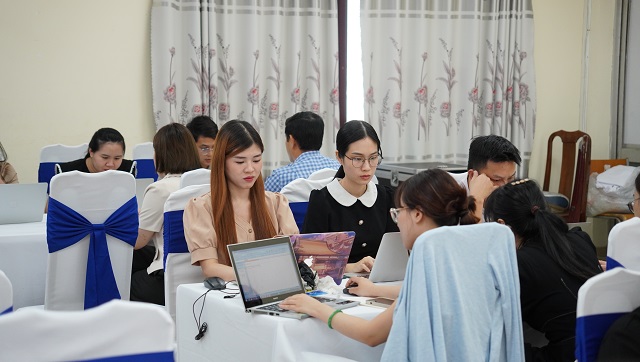
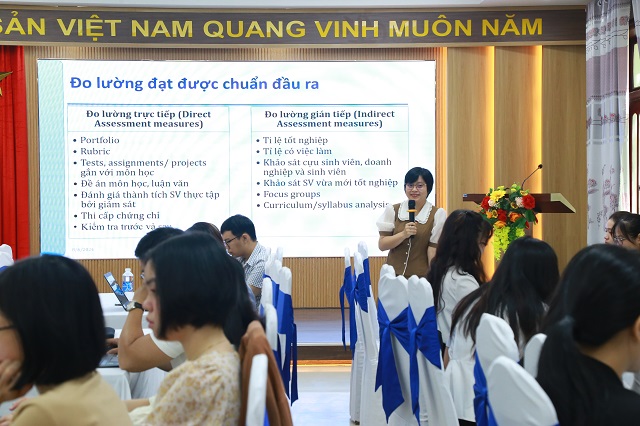
The seminar will continue until August 9, serving as a platform for enhancing professional skills and providing motivation and opportunities for lecturers and researchers at the University of Economics - University of Da Nang to access and apply modern teaching methods, meeting the demands of Industry 4.0 and the current trend of online education.
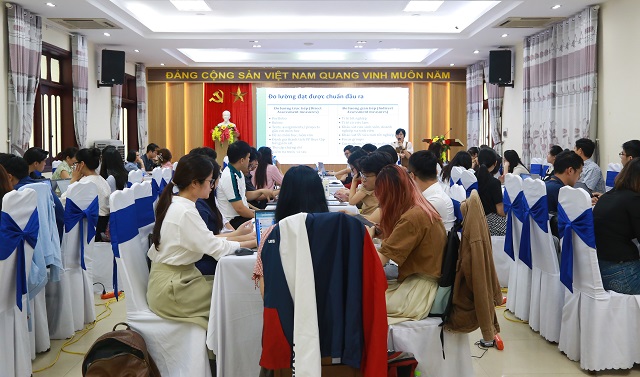
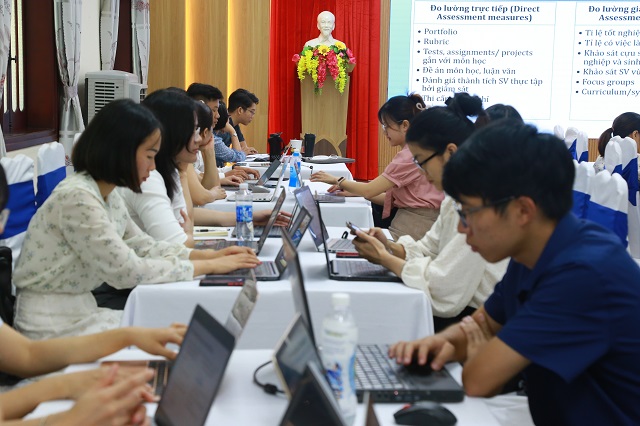
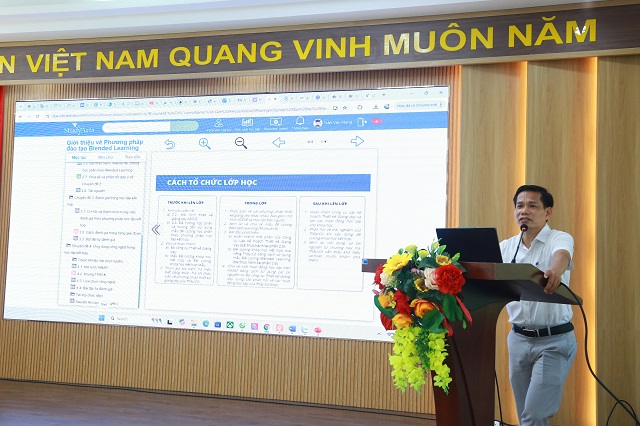
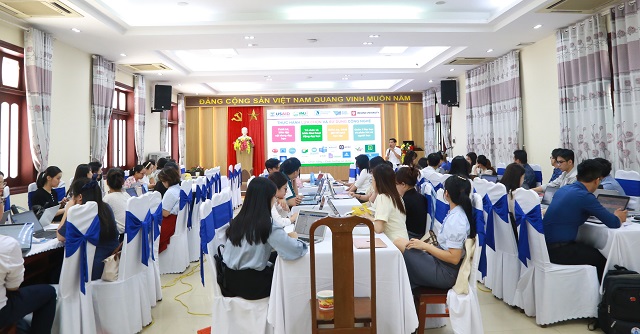
Center for Information and Communication Technology